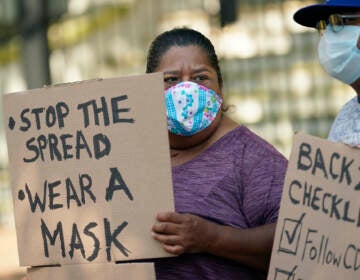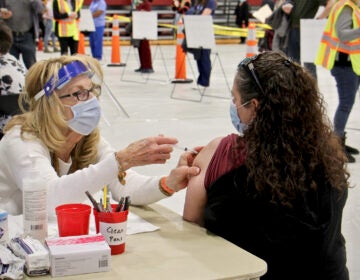Diverse vaccine outreach to Montco’s Latino population is vital, local health and community leaders say
At a virtual town hall, issues of access for Montgomery County’s Latino communities — vaccine supply, language, and technology issues — were the focus.
Listen 1:13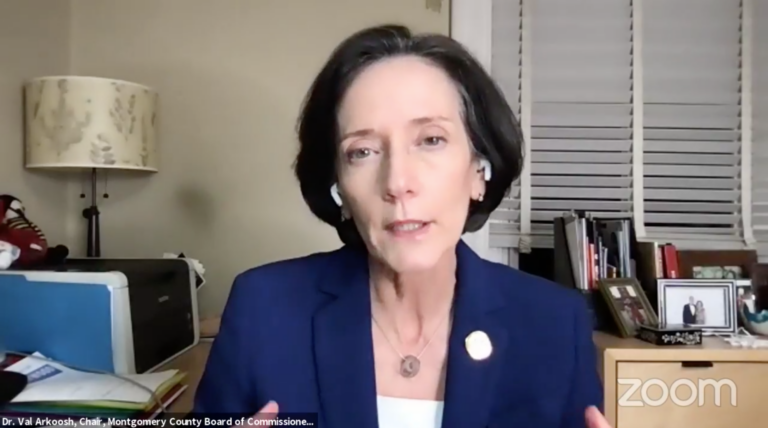
Dr. Valerie Arkoosh, chair of the Montgomery County Commissioners. (Zoom)
Ask us about COVID-19: What questions do you have about the current surge?
To address questions and concerns Latino residents of Montgomery County might have about COVID-19 vaccines, three local health care and community leaders gathered for a virtual town hall to discuss vaccine hesitancy and lack of diverse outreach, among other issues.
“This is where the healthy discussion starts, where we discuss how to improve Latino access to the COVID-19 vaccine,” said Iris Delgado, a reporter for Telemundo62 who served as moderator of the Tuesday night panel.
Delgado said there are 45,000 Hispanic people living in Montgomery County, representing 5% of the population. Yet a significant number have not been vaccinated, she said, arguing that many are hesitant to take the first dose, unsure if it is safe.
Dr. Sadia Benzaquen, chair of pulmonary, critical care and sleep medicine at Einstein Healthcare Network, assured those in attendance that the Pfizer and Moderna vaccines are safe.
“I was vaccinated myself; the side effects are minimal,” said Benzaquen. “You may have some fever, body aches, but there are no major side effects related to the vaccine.”
Given high demand and short supply, Montgomery County is still in Phase 1A of its vaccine rollout. People who are 65 and older are eligible, as are people under age 65 who have one of a dozen health conditions the Centers for Disease Control and Prevention has outlined. Anyone eligible to receive a vaccine is not required to pay a fee or have insurance.
Benzaquen urged Latinos over the age of 60 to get vaccinated, emphasizing that many have a greater risk for high blood pressure (hypertension) and diabetes that also makes them vulnerable to the virus. He also offered assurances that once people are vaccinated they may skip the quarantine process, but must still wear masks and follow physical distancing protocol.
One viewer of the town hall asked why hypertension was not on the list of health conditions in Phase 1A if it is a condition that leaves Latinos vulnerable to the virus.
Dr. Valerie Arkoosh, who chairs the Montco Board of Commissioners, said it was because the CDC has listed the dozen high-risk health conditions that are most likely to lead to a severe case of COVID-19. Since hypertension is a moderately high-risk condition, it did not make the cut, she said.
But low vaccine supply isn’t the only access issue for Latino communities.
Nelly Jimenez, executive director and CEO of ACLAMO Family Centers, said the main issue right now is that there is a lack of direct outreach planning to encourage Latino residents to get vaccinated.
“The message we are sending has to be from people they trust and people who look like us,” said Jimenez. “We can develop a message that is bilingual, cultural, and community-oriented.”
Jimenez suggested having vaccine locations in Latino communities, with translators and interpreters on site who are versed in languages such as French and Portuguese, since the population does speak a range of different languages other than Spanish.
“When we do translations, it’s word for word, but that doesn’t mean we have the exact translation of content. We need the entire message to be translated the same, it has to be culturally competent,” she said.
Arkoosh said the county is working with Norristown-based ACLAMO to figure out the barriers it needs to overcome to make vaccines as accessible as possible.
“But once we get more [vaccines], we do plan to go into communities. We’ll have some mobile vans that can bring vaccines to people. It could be a particular community, it can be an apartment building,” said Arkoosh. “We will try to bring vaccines to people who would have a particularly hard time getting [to] one of these other places.”
Montgomery County is currently running two big vaccination sites — at the high school gymnasium in Norristown and at Montgomery County Community College in Blue Bell — that are accessible by public transportation.
But for those who do not have access to technology, particularly older residents, registering for the vaccine is quite difficult. Arkoosh said the county is currently working on making phone registration available.
Meanwhile, until more vaccine doses become available, Jimenez wants leaders in the community, such as clergy, to be trained to encourage people to get the vaccine.
“We learned from the census, there is no better outreach than face-to-face, which is something we don’t want to do in the middle of the pandemic,” she said. “So we can use our partnership with corner stores, and provide info to them, so they can disseminate that information.”
 WHYY is one of over 20 news organizations producing Broke in Philly, a collaborative reporting project on solutions to poverty and the city’s push towards economic justice. Follow us at @BrokeInPhilly.
WHYY is one of over 20 news organizations producing Broke in Philly, a collaborative reporting project on solutions to poverty and the city’s push towards economic justice. Follow us at @BrokeInPhilly.

Get daily updates from WHYY News!
WHYY is your source for fact-based, in-depth journalism and information. As a nonprofit organization, we rely on financial support from readers like you. Please give today.


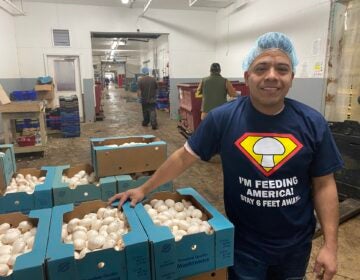
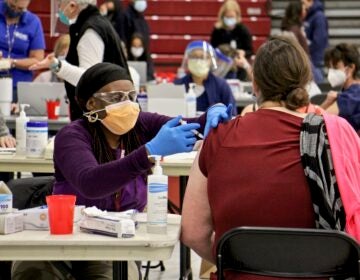

![CoronavirusPandemic_1024x512[1]](https://whyy.org/wp-content/uploads/2020/03/CoronavirusPandemic_1024x5121-300x150.jpg)
